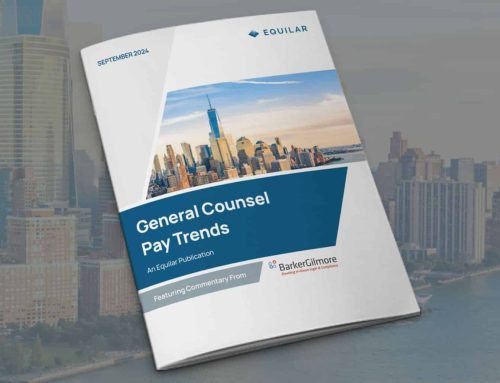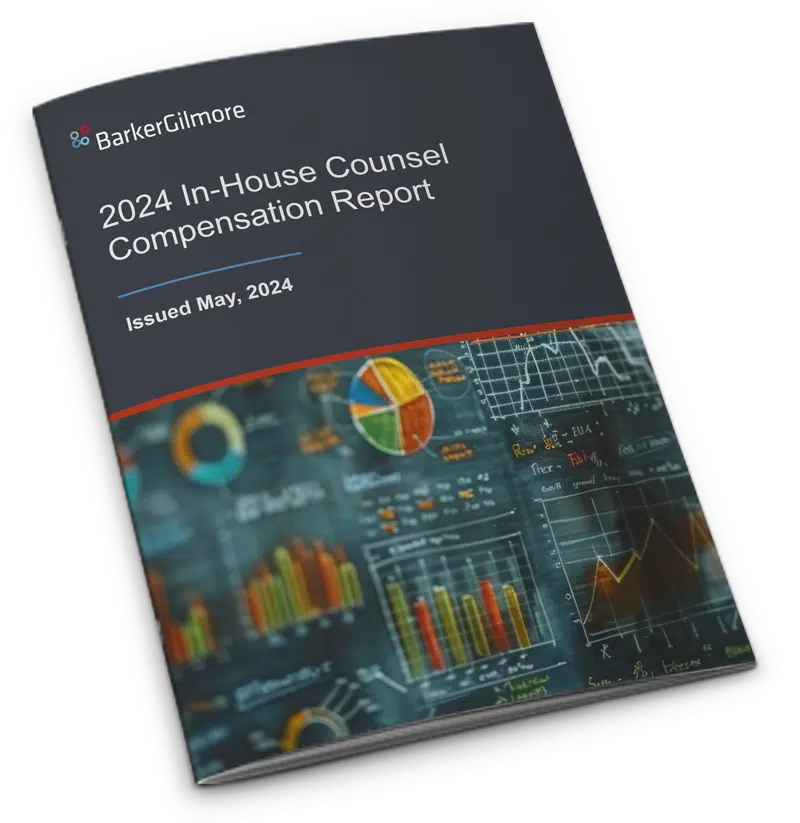Contributors: Brittney McDonough | Katie Gilmore
The COVID-19 pandemic and its heightened precautions may have come to an end in 2023, but that doesn’t mean the trials it presented for most General Counsel suddenly disappeared. In fact, 2024 promises to be equally daunting as healthcare companies deal with the aftermath. Anticipating these complex issues is key to strategic and proactive navigation. Read on for our predictions and strategies to overcome novel healthcare challenges.
Anticipated Challenges for General Counsel Working in Healthcare Environments
- Non-Compete Clauses: The tide has turned on non-compete clauses. The Federal government and states alike are tightening regulations, recognizing the potential impact on worker mobility and innovation. It will be necessary to explore alternative talent retention strategies, such as investing in upskilling, fostering collaborative cultures, and offering equity incentives.
- Post-COVID Realities: The pandemic changed the way healthcare companies do business. This means grappling with a new reality, including remote work policies, evolving telehealth regulations, reporting requirements, and Medicare and Medicaid coverage changes.
- The False Claims Act: The False Claims Act (FCA) remains a potent weapon for whistleblowers and the government. General Counsel will benefit from bolstering compliance programs, conducting regular internal audits, and educating employees on proper billing practices.
- Cybersecurity and Data Privacy: Data breaches remain a constant threat, and healthcare General Counsel are on the frontlines. This means proactive cybersecurity measures must be a priority. Invest in robust IT infrastructure, train employees on data security protocols, and implement comprehensive incident response plans.
- The No-Surprises Act: While the No-Surprises Act aims to tackle surprise medical bills, it actually does a lot more, and many healthcare companies are learning this the hard way. General Counsel should expect to deal with its intricate billing provisions, dispute resolution protocols, and compliance requirements.
- Telehealth Revolution: Telehealth is booming and becoming the new normal. Ensuring clinicians are licensed across appropriate jurisdictions, properly addressing interstate practice restrictions, and complying with telehealth parity laws, all the while securing patient data, safeguarding against fraud, and developing robust online consent models will become a priority.
- Antitrust Scrutiny: Mergers and acquisitions in the healthcare space are under intense antitrust scrutiny. General Counsel will be forced to carefully structure deals, conduct thorough market analyses, and anticipate potential regulatory challenges while collaborating with antitrust authorities. Be prepared to demonstrate pro-competitive outcomes and the ultimate benefit to patients’ terms of healthcare access and affordability.
- Confronting ESG Challenges: Some believe that the pendulum is swinging on ESG, but it still seems to be a priority for most C-Suites. General Counsel can further ESG goals by championing sustainable practices, diversity and inclusion initiatives, and responsible data governance.
- Price Transparency: Price transparency regulations are gaining momentum, pushing healthcare providers to disclose costs upfront. It would be prudent to develop compliant pricing models, navigate payer-provider negotiations, and ensure accurate cost estimates.
- Generative AI: Generative AI will revolutionize healthcare, and healthcare companies are already implementing it in various forms at breathtaking speed. However, legal and ethical concerns abound. It will be necessary to grapple with issues of data privacy, algorithmic bias, and (of course) potential liability arising out of AI-driven decision-making.
- Interoperability: Data silos hinder information flow and hamper patient care. General Counsel must ensure that the company facilitates secure data exchange between providers and institutions. One way to accomplish this is by partnering with stakeholders to develop standardized data formats and advocating for streamlined data-sharing protocols.
- Workforce Transformation: The healthcare workforce is evolving rapidly, demanding upskilling and reskilling initiatives. The General Counsel can play a crucial role in developing training programs, fostering talent mobility, and navigating the legal implications of automation and alternative workforce models. This will require the GC to work closely with HR in creating talent strategies and workforce development initiatives.
- Global Expansion: As healthcare continues to go global, General Counsel must address diverse and sometimes conflicting regulatory landscapes, data privacy laws, and intellectual property considerations. To be successful in complying with international regulations, conduct thorough due diligence for any international ventures, and build strong relationships with local legal counsel.
- Value-Based Care: The transition to value-based care models presents novel legal challenges. General Counsel must develop compliant payment models and navigate data-sharing agreements between providers and payers.
Preparing for 2024
No GC is expected to see the future. With that said, shoring up preparedness in these categories will make for easier management of the likely surprises the legal department will encounter. Train team members to become fluent in specific areas or proactively seek out external resources so it is clear who to turn to when the business encounters a novel legal issue.
Of course, the ultimate goal is to help the business achieve its objectives. Staying abreast of the latest legal developments and being prepared to address them head-on will enable General Counsel to do just that.
As always, reach out anytime if you or your organization may benefit from BarkerGilmore’s recruiting, leadership development, or legal and compliance department consulting services.
Connect with a legal recruiting advisor
* indicates required fields







